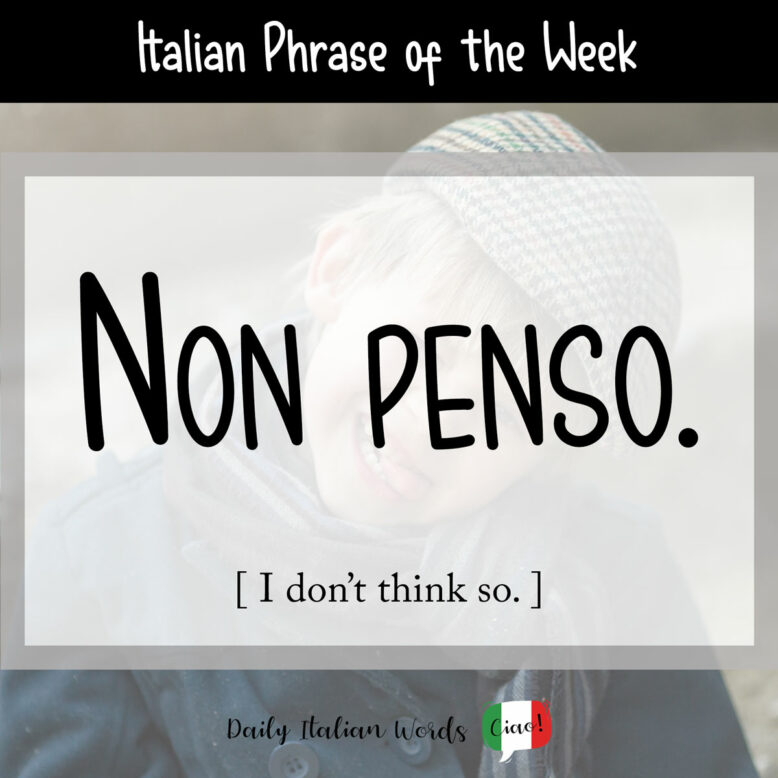The best way to translate the phrase I don’t think so in Italian is, quite simply, Non penso which literally means I don’t think.

The phrase is composed of two words:
non
is used to give a negative sense to a sentence, especially in front of a verb. It is the equivalent of not in English.
penso
is the first-person singular present form of the verb pensare (to think). As is often the case, the first personal pronoun io (I) can be omitted.
In Italian, there is no equivalent for the English word ‘so‘ when it is used to refer back to something previously mentioned. This is why it is sufficient to say non penso on its own.
Abbiamo abbastanza tempo secondo te? – No, non penso.
Do you think we have enough time? – No, I don’t think so.
In order to help the phrase sound more emphatic, Italians often include adverbs like proprio or mica, both of which mean at all or really in this context.
- Non penso proprio / mica! = I don’t think so at all! / I really don’t think so!

If you wish to complete the sentence, you can place the conjunction che (that) after non penso followed by the main clause. For example:
Non penso che ci sia abbastanza tempo.
I don’t think that there is enough time.
The only time you cannot use che is when the same person is doing the thinking in the subordinate clause and performing the action in the main clause. In this case, you must use the preposition di instead. Consider the following sentence, for example, in which I am the one doing the thinking and also the one who cannot come:
Non penso di poter venire con voi. (correct)Non penso che io possa venire con voi. (incorrect)
I don’t think that I can come with you.
As soon as the subject of the main clause becomes someone else – in this case Marco – you can no longer use di.
Non penso che Marco possa venire con voi.
I don’t think that Marco can come with you.

Another very common way of saying I don’t think so in Italian is Non credo which literally translates as I don’t believe.
Two other alternatives that mean exactly the same thing are Penso di no (lit: I think no) and Credo di no (lit: I believe no). Note that, unlike non penso and non credo, neither of these phrases can be used with che + a clause.
Vieni con noi stasera? – Penso di no. Ho troppo da fare.
Are you coming with us tonight? – I don’t think so. I have too much to do.
Heather Broster is a graduate with honours in linguistics from the University of Western Ontario. She is an aspiring polyglot, proficient in English and Italian, as well as Japanese, Welsh, and French to varying degrees of fluency. Originally from Toronto, Heather has resided in various countries, notably Italy for a period of six years. Her primary focus lies in the fields of language acquisition, education, and bilingual instruction.


